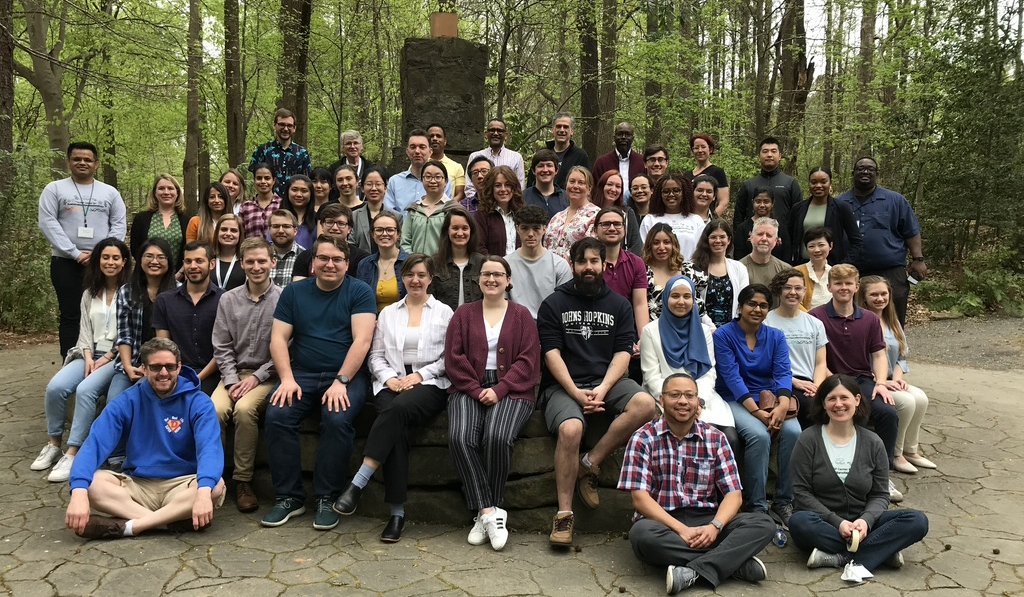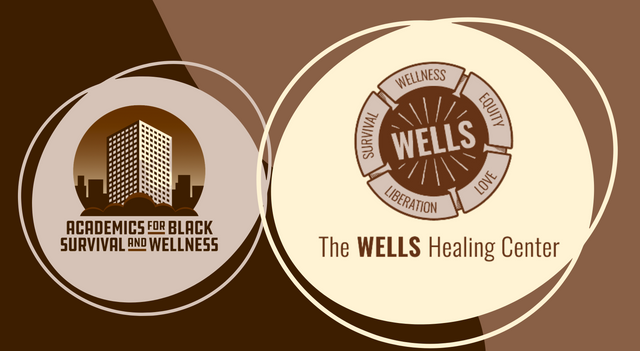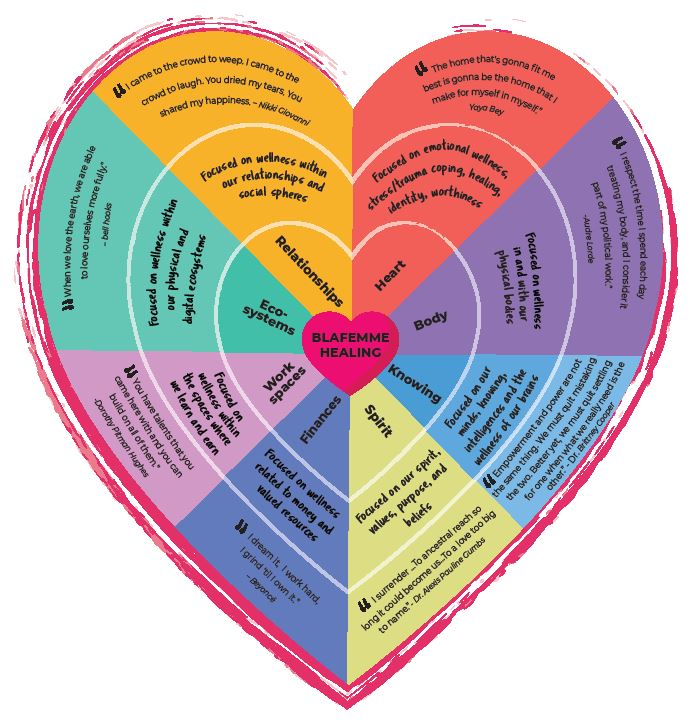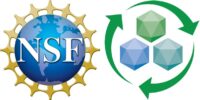
Wellness. Equity. Liberation.
The NSF Center for Sustainable Nanotechnology (CSN) is a community of scientists who embrace people with diverse identities and cultural backgrounds. The CSN is dedicated to dismantling racism and all other forms of harassment or discrimination, both within our center and in the broader academic community. We strive to create a welcoming and inclusive climate where all our members are empowered to be their authentic selves and enabled to apply their individual creativity and passion.
We are committed to advocating for Black, Indigenous, and People of Color (BIPOC), DREAMers, immigrants, international students and scholars, women, the LGBTQIA+ community, people with disabilities, first-generation college students, veterans, people from low socioeconomic status and disadvantaged backgrounds, and any other underrepresented groups, as well as people at the intersection of these identities.
Furthermore, we are dedicated to providing resources and access to opportunities that will help each of our members to thrive in their education and chosen career path. We will actively promote and support people from these and any other historically excluded groups through multi-campus collaboration and mentorship, by developing antiracist policies and practices, and by preparing the next generation of scientists to be advocates for diversity, equity, and inclusion in the scientific community and beyond.
How we got here. The scientific mission of the NSF Center for Sustainable Nanotechnology (CSN) is focused on using fundamental chemistry to enable emerging nanotechnologies. The CSN is also a community of scientists, and we have prioritized creating a welcoming and inclusive climate since the center formed. However, events during the Spring and Summer of 2020 demonstrated that our diversity, equity, and inclusion (DEI) efforts were not doing nearly enough to dismantle anti-Black racism and other systemic barriers that disproportionately harm people from historically marginalized and oppressed groups. On June 10, 2020, the CSN collectively participated in #ShutDownSTEM to brainstorm strategies for supporting social justice and antiracism as a center. CSN participants identified high priority goals and set in motion a DEI strategy centered on understanding and dismantling anti-Black racism and white supremacy culture in our center and the broader STEM community.

One of the highest priorities identified by the CSN community was to engage with a subject matter expert as a collaborator. In spring 2021, a new phase of our work began as we welcomed Dr. Della Mosley (“Dr. Della”) to the CSN as our new Wellness, Equity, and Liberation (WEL) Consultant. Dr. Della co-founded the WELLS Healing Center and brings Black feminist, social justice, and activist-informed approaches that are grounded in Radical Healing and Radical Hope theories that she helped pioneer (Mosley et al., 2020; French et al., 2019), making our work together quite different from many activities designed to promote DEI in STEM. By centering Wellness, Equity, and Liberation within the CSN, we aim to co-create a model for change that positively impacts the entire STEM community.
A Culture of Wellness, Equity, & Liberation
Wellness, equity and liberation are closely linked, yet distinct. Wellness centers on the holistic (emotional, intellectual, financial, etc.) well-being “of individuals, groups, communities, and societies” such that they experience “a positive state of affairs, brought about by the simultaneous satisfaction of personal, relational, and collective needs” (Prilleltensky et al., 2008, p. 110). Equity is the redistribution of resources to achieve wellness for folx who are systematically excluded from it. Liberation is the process of seeking and the outcome of attaining wellness.
Dr. Della and her WELLS team (Dr. Frances Adomako and Jeannete Mejia) provide ongoing training based on the highly successful Academics for Black Survival and Wellness (#Academics4BlackLives) initiative, with a focus on creating a culture of wellness, equity, and liberation in STEM spaces. These empowering workshops and facilitated discussions provide our center members with tools to dismantle systems of oppression in academia, strategies to incorporate wellness into their everyday lives, and opportunities to co-create a culture that embraces the unique identities we all bring to STEM spaces.
“Create spaces and more spaces and more spaces of freedom so people can become who they are, what they’re about, what they can be, and there are no limits. And in the midst of that do so with a strong sense of justice and bringing others along with us.”
Dr. Emily Townes (Dean of Vanderbilt University Divinity School) in Journey to Liberation: The Legacy of Womanist Theology (YouTube Link)

Wellness
Wellness is a broad term that looks different for everyone, but one definition is that “wellness is the act of practicing healthy habits on a daily basis to attain better physical and mental health outcomes.” (Pfizer)
Wellness is a concept that doesn’t get discussed often enough in STEM spaces. Our goal is to support members of the CSN by modeling organizational policies that support wellness, and encouraging individuals to develop holistic wellness practices that propagate into their everyday lives, including their working environment. For a few examples, please see our CSN Wellness Guidelines, which are adapted from the Wellness in 8 Dimensions framework (Swarbrick, 2006; Swarbrick & Yudof, 2017; SAMHSA, 2016; blafemme.com). Ultimately, we believe that success in STEM can be achieved without sacrificing individual well-being and that normalizing a culture of wellness will enable center members to be complete scientists – feeling free to bring our whole selves to our work.
Equity
According to the National Association of Colleges and Employers, “equity refers to fairness and justice and is distinguished from equality: Whereas equality means providing the same to all, equity means recognizing that we do not all start from the same place and must acknowledge and make adjustments to imbalances.” (naceweb.org/about-us/equity-definition)
Inequity manifests in STEM when policies ignore the advantages of privilege and the impact of systemic racism and other forms of oppression. Consequently, people with the least opportunities are often excluded due to their life circumstances or personal identities, not their potential to be successful scientists. In the CSN, we recognize that our backgrounds and identities enrich our center because of our unique experiences. Therefore, one focus of our WEL efforts has been aimed at addressing inequities in STEM spaces through efforts such as holistic application review, valuing “invisible work” (e.g., community engagement and activism), and actively engaging in efforts to raise awareness of how power, privilege, and identity create inequity in STEM spaces. While we still have much work to do, our goal is to model equitable policies and practices that ultimately have an impact beyond our center.
Liberation
In her doctoral thesis, Dr. Della summarized liberation as follows (Mosley, 2018): “Liberation has been defined as ‘the process of resisting oppressive forces and striving toward psychological and political well-being’ (Prilleltensky, 2003, p. 195). As a process, it involves the act of resisting oppression (e.g., joining a #BLM chapter, practicing inclusion in hiring practices). As a state, liberation is the result of not being oppressed, as an individual or as a member of a larger social group (e.g., having peace, being healthy, experiencing social cohesion; Prilleltensky, 2003, 2008).”
What does liberation mean in the CSN? The CSN strives towards liberation by empowering center members to show up as their authentic selves, rather than expecting them to assimilate into an actively hostile system. We reject deficit-focused DEI strategies that assume people from historically oppressed groups need to be fixed, and instead seek to dismantle systems of oppression that are the true barriers to equity and inclusion. Our process of liberation includes ongoing training aimed at raising awareness of anti-Black racism and white supremacy culture in STEM, normalizing open and honest discussions about power, privilege, and identity, creating antiracist policies (e.g., holistic evaluation practices), and promoting personal wellness for center members and collaborators.
Wellness, Equity, and Liberation (WEL) Committee
The WEL Committee coordinated CSN wellness, equity, and liberation goals and sets priorities for how we focus our efforts. The WEL Committee welcomes all center members to participate, and currently includes students, postdocs, faculty and staff.
References
Bryana H. French, Jioni A. Lewis, Della V. Mosley, Hector Y. Adames, Nayeli Y. Chavez-Dueñas, Grace A. Chen and Helen A. Neville (2019). Toward a Psychological Framework of Radical Healing in Communities of Color. The Counseling Psychologist. 48 (1), 14-46. doi.org/10.1177/0011000019843506
Della V. Mosley, Helen A. Neville, Nayeli Y. Chavez-Dueñas, Hector Y. Adames, Jioni A. Lewis and Bryana H. French (2020). Radical hope in revolting times: Proposing a culturally relevant psychological framework. Social and Personality Psychology Compass. 14 (1), e12512. doi.org/10.1111/spc3.12512
Della V. Mosley (2018). EXPLORING CRITICAL CONSCIOUSNESS, FACILITATING BLACK LIBERATION. Theses and Dissertations–Educational, School, and Counseling Psychology. 78. https://uknowledge.uky.edu/edp_etds/78/
Isaac Prilleltensky (2008). The role of power in wellness, oppression, and liberation: the promise of psychopolitical validity. Journal of Community Psychology. 36 (2), 116-136.
Isaac Prilleltensky (2003). Understanding, Resisting, and Overcoming Oppression: Toward Psychopolitical Validity. American Journal of Community Psychology. 31 (1-2), 195-201.
Margaret Swarbrick (2006). A wellness approach. Psychiatric Rehabilitation Journal, 29(4), 311–314.
Margaret Swarbrick and Jay Yudof (2017). Wellness in 8 Dimensions. © January 2017 Collaborative Support Programs of NJ, Inc. (PDF download)
SAMHSA National Wellness Week (PDF poster download)
Journey to Liberation: The Legacy of Womanist Theology (YouTube)
